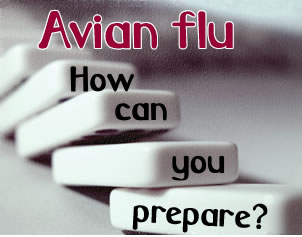 (EDITOR’S NOTE: The following information is from the “Q & A” section on the the Centers for Disease Control and Prevention (CDC) Web site on avian influenza.
(EDITOR’S NOTE: The following information is from the “Q & A” section on the the Centers for Disease Control and Prevention (CDC) Web site on avian influenza.
Can I get avian influenza from eating or preparing poultry or eggs?
You cannot get avian influenza from properly handled and cooked poultry and eggs.
There currently is no scientific evidence that people have been infected with bird flu by eating safely handled and properly cooked poultry or eggs.
Most cases of avian influenza infection in humans have resulted from direct or close contact with infected poultry or surfaces contaminated with secretions and excretions from infected birds. Even if poultry and eggs were to be contaminated with the virus, proper cooking would kill it. In fact, recent studies have shown that the cooking methods that are already recommended by the U.S. Department of Agriculture (USDA) and the Food and Drug Administration (FDA) for poultry and eggs to prevent other infections will destroy influenza viruses as well.
So to stay safe, the advice is the same for protecting against any infection from poultry:
- Wash your hands with soap and warm water for at least 20 seconds before and after handling raw poultry and eggs.
- Clean cutting boards and other utensils with soap and hot water to keep raw poultry from contaminating other foods.
- Use a food thermometer to make sure you cook poultry to a temperature of at least 165 degrees Fahrenheit Consumers may wish to cook poultry to a higher temperature for personal preference.
- Cook eggs until whites and yolks are firm.
- The U.S. government carefully controls domestic and imported food products, and in 2004 issued a ban on importation of poultry from countries affected by avian influenza viruses, including the H5N1 strain. This ban still is in place.
For more information, see Embargo of Birds from Specified Countries.
Watch UNMC Today for future articles in the Avian flu education series.